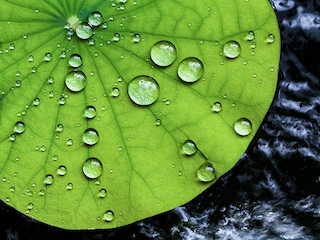Incredible properties of the lotus leaf are inspiring new types of packaging
Australian researchers have developed a bioplastic based on the hydrophobic properties of the lotus leaf


Could packaging soon be treated like food waste in terms of sorting? Or better yet, could compost be made out of it? It"s no longer the stuff of science fiction. In fact, companies may simply have to look to the lotus leaf, whose hydrophobic—or water-repellent—properties appear to allow for optimal preservation of foodstuffs. What"s more, this packaging could completely decompose in the soil.
Australian researchers from the RMIT University in Melbourne have been working on this unique property in order to develop a bioplastic capable of packaging foodstuffs. But it"s not enough to just draw inspiration from nature to find a solution to plastic pollution. The work consisted in setting up a manufacturing process that is economically affordable but also easy to set up in order to imagine rolling it out on an industrial scale.
For this reason, the formula uses only two ingredients: starch and cellulose. A pattern that mimics the structure of the lotus was applied to the material, before it was coated with a silicone-based organic polymer. Like the lotus, the material is able to act as a barrier against water and dirt.
Why does this research represent a genuine breakthrough? Because, contrary to what the term "bioplastic" suggests, not all such packaging is necessarily biodegradable. Indeed, bioplastic can be manufactured from oil. Moreover, bioplastics must often be heated to very high temperatures for them to break down. In the case of this imitation lotus leaf, the researchers promise that their discovery decomposes after contact with insects in the soil.
Now, Australian scientists are waiting to put their research into practice by establishing commercial partnerships.
First Published: Mar 02, 2022, 18:59
Subscribe Now